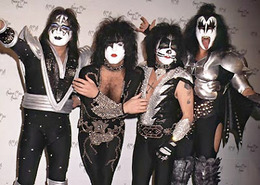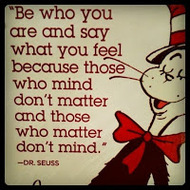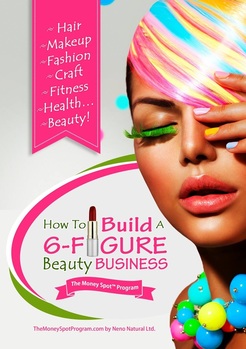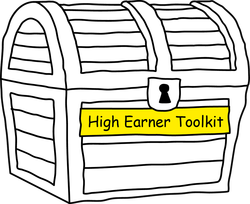 When people can't get a job they blame it on all manner of things: they're racist, they're fattist, it's because of my hair or my hijab or because immigrants are taking up all the jobs - I've never heard this one though and it's more likely now than ever before that your own crazy opinions are keeping you from the job you want. I love social networking as much as the next person, however, I am all too aware that what you write can make or break your chances of getting jobs. Nowadays your résumé/CV is not your potential employer's only source of information about you; they tend to google you as well. Would you be happy for your employer to see everything that comes up about you? Using social networks consciously and responsibly has never been more important. What you write, share and 'like' matters; it gives insight to your personality and temperament; it could be standing between you and that highflying job. Here are my tips: THE HEADLINE TEST Before you post anything think: “Would I be proud to see this shared on the front cover of The Wall Street Journal or The Financial Times?” I learnt this tip on my first job at Goldman Sachs. ANGER BACKTRACK If you’re angry, annoyed or irritated do not tweet, blog or post anything. Feel free to rant and rave about it in your personal word processor but leave it be until you are not angry or at least less angry and you’ll find that it was going to be one of those posts you later regretted. DE-CONNECT If you tweet a lot of random stuff, don't connect your twitter to your LinkedIn. You know employers and headhunters officially trawl LinkedIn profiles to find out stuff, right? CLOSE UP So you’re mr or ms popular: you’re the entertainment organiser at your school or university. Good for you, but that doesn’t mean you need to have a completely open Facebook profile. If people are interested in what you have to say they can follow you on Facebook in which case they only see your “public” posts not those to “friends” only. Go through your personal info and carefully select what is viewable by the public and what is not. It should only be stuff that adds positive value to your employability. CHOOSE YOUR FRIENDS CAREFULLY Facebook didn’t always have the subscription/follow button so people used to accept friends willy nilly. Personally, I don’t friend anyone that I don’t actually know. Decide what criteria people need to satisfy to be your “friend” on Facebook and only friend those. Everyone else can subscribe to your public posts. THE FUNNY TEST Funny or hateful? The biggest temptation is to share stuff that makes us laugh. Once you’ve had a good laugh you always want to share. Making people laugh makes them like us and everyone loves to be liked. Unfortunately, a lot of funny stuff is funny because it’s taking a stab at a certain segment of society. Before you share funny stuff, think about whether it makes you look like a misogynist, a racist, a homophobe, a pervert or whether it is persecuting a given religious group. I know a guy who had a nice job that he could have stayed in for years but ended up having to resign because he was sharing inappropriate material on an internal group chat. PSEUDONYM You don’t have to use your real name. Even if you use a real photo of yourself if you create a pseudonym you’re going to be hard to find with google searches. If you’re working under an alias you have a lot more leeway in terms of what you tweet and share, however, keep in mind that someone in the ‘inner circle’ could betray your confidence. Have a business or life question you want me to answer? Please email it to me with the subject “Question”. Note that all such questions will be answered as a blog post and will be sent to my full email list.
Want to start a business? Check out The Money Spot Program.
0 Comments
 Human beings are hard-wired to conform. Back in the hunter-gatherer days you had to conform because if you didn’t you’d become a social outcast and that basically meant you spent a lot of time alone. No one would make friends with the guy or gal that had been relegated as unfit for the community for fear that they too would be tarnished with the same brush. Even now, the more homogenous a society is, the more you feel the pressure to conform. I grew up within a homogenous culture back in Malawi. Everyone pretty much had the same core beliefs so if you thought differently you just kept it to yourself. You wouldn’t admit you were an atheist or gay for instance, you would just keep it to yourself. Even then, some of my closest friends were gay but it was a secret that you kept sealed tight. As for not believing in a God, I had such strong views on the matter (I didn’t understand why you wouldn’t believe in God) that it took me about 7 years of living in Britain – a very Cosmopolitan country – to get my head around it being acceptable to be agnostic or simply not to believe. Anyway, I digress. WHY DO WE CONFORM? We conform because we want to be liked. That is the key reason. We want to be part of a community. We want social approval. Our own self-worth and value tends to be so wrapped up in what people think of us.  WHY COULD IT BE BAD TO CONFORM? Unfortunately, conforming is what keeps many people in wage slavery or stops them pursuing their dreams – we’re afraid to take massive action or even to take small risks because of what people might say. Quitting a job to start a business is a massive risk and a couple of negative comments are enough to discourage most people from taking the chance to create something special. WHAT YOU CAN DO TO GET RID OF THE FEAR OF DOING SOMETHING DIFFERENT Stop caring what everyone thinks. When someone gives you an opinion, you have no idea why they are offering that particular perspective.
Everyone sees life from a different point of view and everyone has different goals. Compromising your dreams based on other people’s opinions isn’t a good strategy for personal growth. Frequently, the people that will stop us are our very own parents; parents tend to be massively afraid of children breaking from societal norms. Good examples of people who believed enough in their dreams to stop conforming.  Sara Blakely: She is the founder of Spanx. In a Bloomberg Game Changers documentary I watched about her she revealed that she was so afraid of people thinking her idea was stupid that she told no one about it until it was already rolling. Now, she is the youngest ever female entrepreneur to build a billion-dollar company. She succeeded with real products when everyone else was going into tech. You have got to admire that. Arunachalam Muruganantham: He is a school dropout from a poor family in southern India and he completely revolutionised menstrual health for rural women in developing countries by inventing a simple machine for making cheap sanitary pads. It took him years to get to the perfect design. People laughed at him and called him weird as he carried out research on menstrual periods and it all culminated in his wife leaving him because he had become a social pariah. The irony was he started on this entrepreneurial path to help his wife. I have massive admiration for this guy. I’m giving you just two examples here but I could give you many more. I could even talk about my own life and the mocking that I went through in high school but I chose to use third-party examples. I hope these people inspire you to take some risk, to stop conforming and to ultimately take the massive actions that will buy your financial freedom. References: The Indian sanitary pad revolutionary, BBC How to fail your way to your first $1 billion, Entrepreneurs Institute  Want to Build a 6-Figure Beauty Business from the comfort of your sofa? Then my course is designed for YOU! "Beauty" includes a WIDE range of products from the not so obvious non-perishable foods and crafts to the more obvious hair, makeup, fashion, health & fitness. |
Heather on WealthI enjoy helping people think through their personal finances and blog about that here. Join my personal finance community at The Money Spot™. Categories
All
Archives
September 2023
|
Heather Katsonga-Woodward, a massive personal finance fanatic.
** All views expressed are my own and not those of any employer, past or present. ** Please get professional advice before re-arranging your personal finances.

 RSS Feed
RSS Feed


